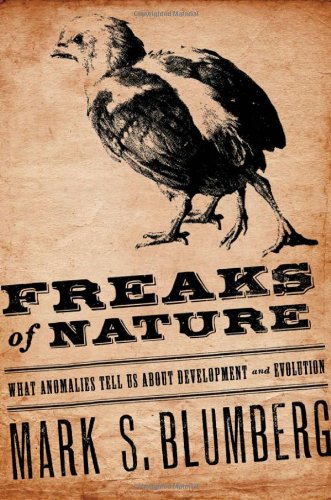

Most ebook files are in PDF format, so you can easily read them using various software such as Foxit Reader or directly on the Google Chrome browser.
Some ebook files are released by publishers in other formats such as .awz, .mobi, .epub, .fb2, etc. You may need to install specific software to read these formats on mobile/PC, such as Calibre.
Please read the tutorial at this link: https://ebookbell.com/faq
We offer FREE conversion to the popular formats you request; however, this may take some time. Therefore, right after payment, please email us, and we will try to provide the service as quickly as possible.
For some exceptional file formats or broken links (if any), please refrain from opening any disputes. Instead, email us first, and we will try to assist within a maximum of 6 hours.
EbookBell Team

4.8
64 reviewsIn Freaks of Nature, Blumberg turns a scientist's eye on the oddities of nature, showing how a subject once relegated to the sideshow can help explain some of the deepest complexities of biology. Why, for example, does a two-headed human so resemble a two-headed minnow? What we need to understand, Blumberg argues, is that anomalies are the natural products of development, and it is through developmental mechanisms that evolution works. Freaks of Nature induces a kind of intellectual vertigo as it upends our intuitive understanding of biology. What really is an anomaly? Why is a limbless human a ''freak,'' but a limbless reptile-a snake-a successful variation?
What we see as deformities, Blumberg writes, are merely alternative paths for development, which challenge both the creature itself and our ability to fit it into our familiar categories. Rather than mere dead-ends, many anomalies prove surprisingly survivable--as in the case of the goat without forelimbs that learned to walk upright. Blumberg explains how such variations occur, and points to the success of the Hensel sisters and the goat as examples of the extraordinary flexibility inherent in individual development. In taking seriously a subject that has often been shunned as discomfiting and embarrassing, Mark Blumberg sheds new light on how individuals--and entire species--develop, survive, and evolve.